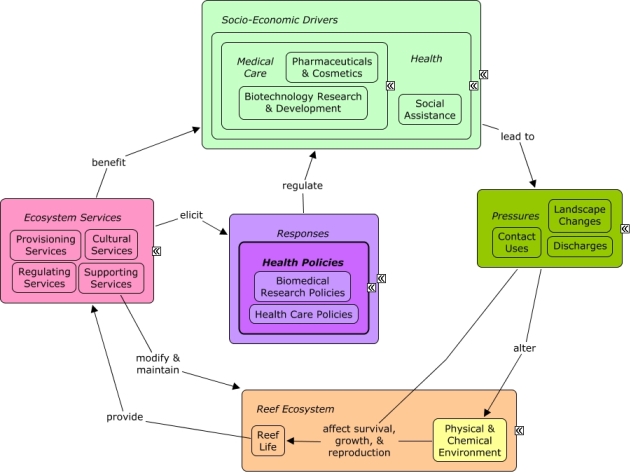ReefLink Database

Health Care Policies
Health care policies are actions taken to change the provisioning, cost, or need for health care services, and may include modifications to health insurance, preventative care, and establishment or management of health care facilities.
CMap

CMap Description
A change in the provision of ecosystem services, or a desire to improve provision of ecosystem services, may elicit responses to manage the distribution and functioning of health sectors. Ineffective waste management can lead to waste discharges or littering that inputs nutrients, contaminants, and marine debris into the reef environment. Waste management policies can be implemented to regulate, install, or upgrade sewage treatment systems or solid waste disposal. Ordinances can be adopted to mandate clean cities. The pharmaceuticals and cosmetics industry creates pressure on the reef environment through harvesting of fish and invertebrates for use in research or products. Biomedical research policies, including funding and patent laws, can influence the demand for biochemicals and the activities of research and development. Health sectors benefit from reef ecosystem services, including provisioning of marine products and natural waste management through nutrient and contaminant processing.Citations
| Citation | Year | Study Location | Study Type | Database Topics |
|---|
Management Options
| Management Option | Description | Sources | Database Topics |
|---|
Laws
| Legal Citation | Purpose of Law | Management Organization | Database Topics |
|---|
